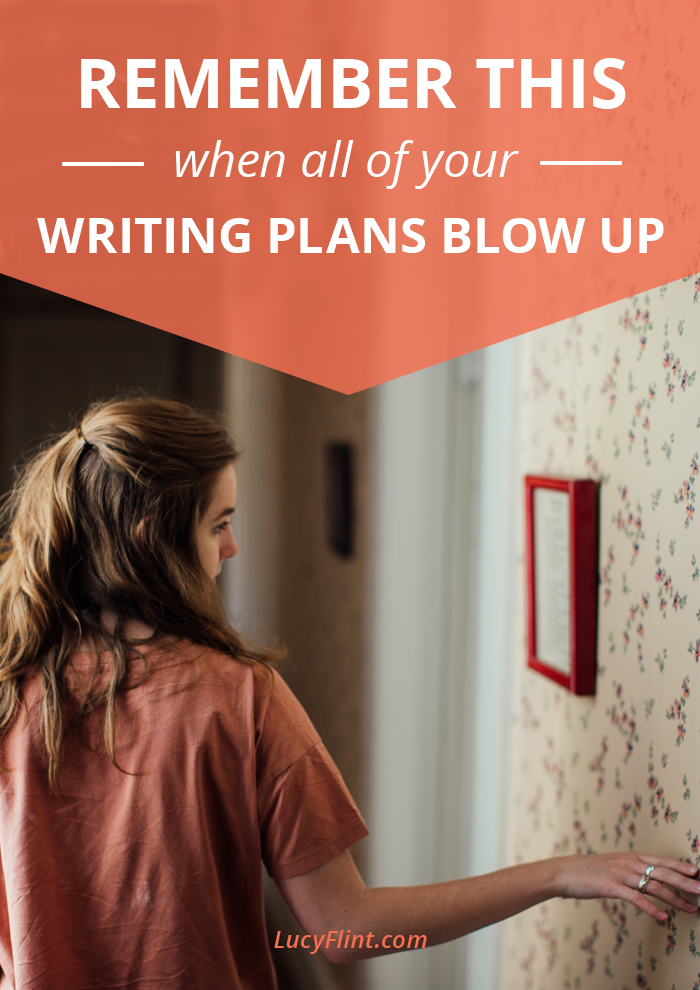Today's A Really Good Day For A Writing Life Revolution
/OH, I'm excited.
This is one of my favorite lionhearted characteristics.
I know, I know. They're all my favorite.
But this is a trait that will shake everything up, turn your life upside down, and generally turn you into a totally different writer. AND PERSON.
Or at least, that's what it did for me.
Here it is:
A lionhearted writer is kind to herself. She gives herself grace.
Does it sound revolutionary? Maybe not.
But it is. Ohhhhh, it is.
I have seen this play out in my own writing life again and again. When I'm kind to myself as a writer, versus when I'm not.
Let me tell you: there is a mega-difference between kind Lucy and not-so-kind Lucy.
Kind Lucy is the more resilient, enduring, brave, spirited, wild, and patient writer.
Not-so-kind Lucy isn't.
She flails around and burns out and is stingy with herself and everyone else. If she does get work done, it doesn't ring true to her real voice. (Also, she's all bruised and ragged and self-hating by the time the piece is done.)
Kindness wins.
Every single time.
If you feel resistant to this idea, I understand.
Kindness can feel like the long way around. Because sometimes kindness means taking a vacation, or releasing a piece that doesn't work, or nurturing your creativity with a long walk alone.
Or taking two months off to just read novels, nonstop. (Yup. I've done it.)
Kindness can seem counterproductive, but don't let it fool you.
When you take good care of the writer, make no mistake: you're also taking excellent care of the writing.
We need to let go of the idea that being harsh with ourselves is somehow productive. That being intolerant with our "mistakes" (aka LEARNING) is going to help us learn faster.
That being inflexible means everything's gonna work out better. Because no, it won't. And that inflexibility only means you won't be able to deal with the fallout. I promise. (Like I said, I've been there.)
Friends, we need to let go of the idea that self-abuse makes for a strong, enduring writer.
It just doesn't. Not in my experience.
When I adopt harsh writing practices, I also go blind to my true voice, my best material. And all my characters start acting harsh too (which is deeply unfun to read later, by the way).
And when we edit, we edit the work. We don't tear apart the person who created the work.
One of the zillion things I loved in the genius structure manual The Story Grid was this quote from Shawn Coyne: "You as the writer are not the problem; the problem is the problem."
That quote has been so valuable for me, time and time again. (And I may or may not have cried a little the first time I read it.)
It is the essence of kindness. There is the writer, and there is the problem, and the two are not the same.
We have to make that shift, all of us. We have to be able to disconnect who we are—our worth and our value—from the quality of our work-in-progress.
We have to be kind as we're editing and revising and critiquing. Not that we let bad writing stand when we know how to fix it—of course not!
But we also recognize the crappy draft as the crappy draft. It's just doing its job. And the writer who made the crappy draft was also doing her job.
In other words: kindness means having a proper focus. The problem is the problem. No more, no less than that.
So with that cleared up, we can then bring our laser-like attention to the actual problem. And get on with, you know, actually fixing it.
Bonus: We'll have the energy and stamina to do that, precisely because we haven't been brutalizing and savaging ourselves in the meantime.
YAY for all that, right?
This is how kindness makes us resilient.
Which is why it's a key ingredient to a sustainable writing practice. To building a healthy and happy writer.
It doesn't mean sacrificing ambition or excellence. It doesn't mean we have a slack idea of what quality writing is.
It just means we don't confuse the problem with the writer.
Kindness, in this sense, boosts our creativity, our ability to innovate, and our energy to keep moving.
When we are persistently and rightly kind to ourselves, we're free.
We can abandon the wrong ideas and the shabby writing, because we don't need to cling to them to prove ourselves. We can shed writing ideas that no longer fit us and writing strategies that we've outgrown.
We can be flexible, and, weirdly enough, we can afford to take risks.
Because in the eyes of kindness, failure doesn't mean we are a failure. It means "Keep going! We're learning!"
So is it basically a superpower? Yes. Yes it is.
One more reason why kindness is essential comes from this fantastic and spot-on quote from Betsy Lerner in The Forest for the Trees:
There is no stage of the writing process that doesn't challenge every aspect of a writer's personality.
That is something I have found to be completely, absolutely, and always true.
What keeps us going through those challenges, if not kindness along with strategy? And kindness along with persistence? And kindness along with purpose and vision and hope?
So my friends. This is what we do, after all. This writing.
And to do it well, to do it so that we last, to do it so that it doesn't chew us up and generally kill us, we absolutely must learn to be kind to ourselves.
Starting right now.
What stage of the writing process is especially tough on you right now?
Where do you need to add a dose of kindness to your writing life? And what might that look like?















